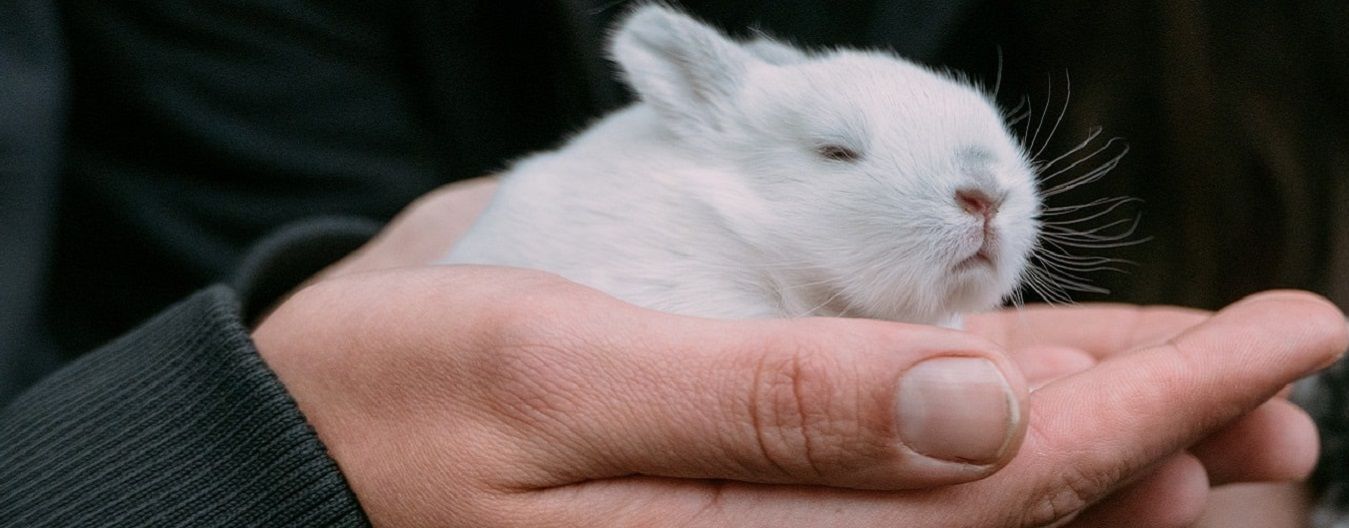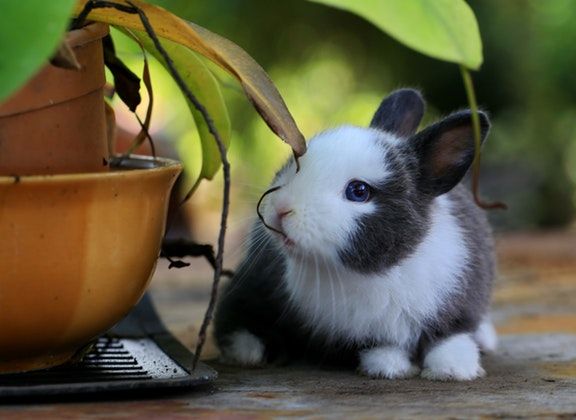

Rabbits are gentle and sometimes shy animals that have become increasingly popular pets in Singapore. With over 50 breeds available, these fascinating creatures, belonging to the lagomorph family, require specialized care to thrive.
Unlike rodents, rabbits have an extra set of upper incisors called “peg teeth,” which grow continuously throughout their lives. And like their wild counterparts who graze on grasses, domestic rabbits need a high-fiber diet to maintain healthy digestion.
One unique aspect of rabbit digestion is cecotrophy, which means rabbits produce two types of droppings: hard pellets and nutrient-rich cecotropes or “soft” stools. It’s also normal for rabbits to eat their cecotropes to obtain essential vitamins and proteins.
At Beecroft Bird & Exotics Veterinary Clinic, our exotic animal vets understand the intricacies of rabbit care. Aside from providing general and emergency medical services, we also provide care guidelines to ensure your bunny stays happy, healthy, and well.

Providing a balanced diet is crucial for your rabbit’s health and longevity, and vets generally recommend these nutritional guidelines:
Gastrointestinal stasis (slowing down of the passage of food through the GI tract) is one of the most common problems seen in pet rabbits, which necessitates emergency care. Also, it is often the cause of decreased appetite in an otherwise healthy rabbit. An improper diet (often too high in carbohydrates and too low in fiber) is frequently the primary cause, and the condition may be exacerbated by stress, such as a new environment, new cage mates, pain, new people in the house, loud noise, etc.
Rabbits with GI stasis used to be described as having “hairballs.” In fact, most often, hairballs are not the cause of the slowing of food passage. Instead, diets low in fiber lead to changes in the acidity of the GI tract and may lead to the establishment of abnormal GI bacteria that produce gas.
Gas also causes abdominal discomfort and often causes the rabbit to not want to eat.
Rabbits normally have a small quantity of hair present within their stomachs, which, when they become dehydrated from not eating, can become a dry mat of fur within their stomachs. However, a true hairball is not usually the primary cause of their decreased appetite.
Rabbits with GI stasis often have soft stools, small/hard stools, or no stool at all. With severe GI stasis, or in rare cases of true GI obstruction from the consumption of foreign material such as carpeting, rabbits can die from the overgrowth of abnormal GI bacteria or from GI tract rupture.
Acute, profuse diarrhea, as seen in young rabbits with GI parasites or bacterial infection, is also a medical emergency. These rabbits may become severely dehydrated and/or absorb toxic substances produced by abnormal bacteria in the GI tract. Young rabbits with profuse diarrhea or rabbits that are not eating for more than a day should be examined by an exotic animal veterinarian immediately.
Teeth problems are also very common in rabbits and are often linked to improper diet. Rabbits’ teeth (incisors and molars) grow 4-5 inches a year and will often overgrow, become abscessed at the roots, or form sharp spurs/points from abnormal wear. Rabbits with dental disease will often drool and stop eating. Please seek emergency medical attention if your pet shows these symptoms.
Obesity is common in pet rabbits and is often due to improper diet (too many pellets or treats, not enough hay or fiber) and lack of exercise. Obesity can lead to lameness and sores on feet, inability to groom (urine and fecal accumulation on the coat), and GI stasis. While this concern doesn’t require emergency medical attention, it still needs veterinary care to ensure proper nutritional guidance.
Pasteurella is a bacteria that many rabbits acquire at birth. While Pasteurella may cause no signs in some rabbits, in others, it may turn into infections affecting the eyes, nose, lungs, skin, and bones.
Rabbits also develop upper respiratory (eyes, nose, and throat) and lower respiratory (lung) infections from a variety of other bacteria. So, rabbits should not be housed with guinea pigs because rabbits commonly carry bacteria that can affect guinea pigs and vice versa.
Kidney disease occurs in older rabbits and may be caused by infections, toxic substances, cancer, and aging changes. Additionally, urinary tract stones can occur from excessive calcium ingestion from a high calcium (predominantly alfalfa-based) diet, and these stones typically require surgery to remove.
Uterine cancer is also common in older, unspayed female rabbits, and over 80% of unspayed female rabbits after 3-4 years of age may develop this condition. For this reason, all female rabbits not being used for breeding should undergo rabbit spaying.
Cancer in rabbits can affect various organs and systems, with common types including uterine cancer, lymphoma, and skin cancer. Also, the symptoms of rabbit cancer can vary widely depending on the type and location, but may include lumps or bumps, weight loss, lethargy, and changes in appetite or behavior.
Regular checkups with a veterinarian are crucial for early detection and treatment of rabbit cancer. If you notice any unusual lumps, bumps, or concerning changes in your rabbit’s health, contact our clinic immediately.
Coccidia are microscopic parasites that often cause diarrhea in young rabbits less than 6 months of age. With some infected rabbits having mucus and blood in the stool, this condition requires emergency medical attention.
Encephalitozoon is another microscopic parasite that may be carried by some rabbits without ill effects, or it may cause kidney problems and neurologic signs, such as head tilting, rolling over sideways, and walking in circles. Rabbits with these signs should be examined immediately by a rabbit vet to help distinguish these signs from those due to an inner ear bacterial infection.
Rabbits are prone to digging/chewing and may tear off toenails, ingest foreign objects, or suffer electrocution from chewing on live wires.
It is essential for all rabbit owners to “rabbit-proof” any area their rabbits are allowed in to prevent accidental ingestion of foreign objects or toxins that may require emergency medical care.
In addition, rabbits have very strong back legs that kick with great force. For example, accidental spinal or leg fractures can occur when rabbits are not handled properly (when their hind ends are not supported) or when they jump/fall from high surfaces.
Rabbits are naturally skilled in disguising illnesses. As prey animals, they instinctively hide signs of weakness to avoid attracting predators, which means that by the time a rabbit shows obvious signs of illness, the underlying condition may already be quite advanced.
So, it’s crucial for rabbit owners to be vigilant and recognize subtle changes in their bunny’s behavior, appetite, or physical appearance that could indicate a health problem.
Early detection of illness is key to successful treatment and can even prevent rabbit emergencies. If you notice any of the following warning signs, contact our veterinary clinic immediately:
Annual checkups with our rabbit vet are crucial for early detection of health issues and to ensure your bunny is thriving. These yearly physical exams typically include:
Whether you need an annual health check or emergency care for your bunny, turn to Beecroft Bird & Exotics Veterniary Clinic and work with the only rabbit specialist in Singapore. Schedule an appointment to secure your slot.
Rabbits can experience sudden health crises that require immediate veterinary attention. Some common rabbit concerns that require emergency care include:
GI stasis is a serious condition where the digestive system slows down or stops, and it’s a common rabbit emergency that can quickly become fatal if left untreated. Symptoms to watch out for:
Neurological problems can cause a variety of concerning symptoms in rabbits, and the symptoms include:
Severe diarrhea, especially in young rabbits, can lead to rapid dehydration and even death. Watch out for signs, such as:
Rabbits can suffer traumatic injuries from falls, improper handling, or encounters with other animals. Symptoms may include:
If your bunny exhibits any of these signs, contact us immediately for rabbit emergency care.
